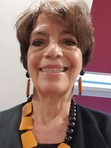Eva Hnizdo's Blog, page 7
May 26, 2021
I am a Jewish Czech rather than a Czech Jew . I am interested in Israeli/Palestinian politics and wish them all a better, peaceful life but Israel is not my country.
I just read an article.
I don’t have this experience, but I understand, and it feels bad. It should not be about Israeli/Palestinian situation. not all Jewish people feel Israel is their country. I don’t. In fact, when people presume that being Jewish, I must be pro-Israeli politics, it annoys me, and I take it as a sign of their antisemitism.: I am completely secular, I married a non-Jew, and I never had a Jewish partner, mixed marriages were common in my family since 1920. I am a Jewish Cech, not a Czech Jew. An English friend asked me why I am telling people I am Jewish, that I am not ” Typical” I told him what he said was anti-Semitic. Then it transpired his maternal grandmother was Jewish, so he thought he was, too, and didn’t like it. We discussed it. It was OK, he is a nice man. Maybe I am telling people precisely because I am not “typical” . I am a pork eating Christmas celebrating Jewish Czech. There are many like me. And yes, it antisemites were in power my ” assimilation” as some people would call it wouldn’t help. Didn’t help my family.
OH I hope the author of this article is wrong!
May 19, 2021
A nice story, and I am sure there are many.
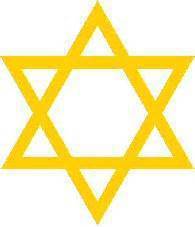
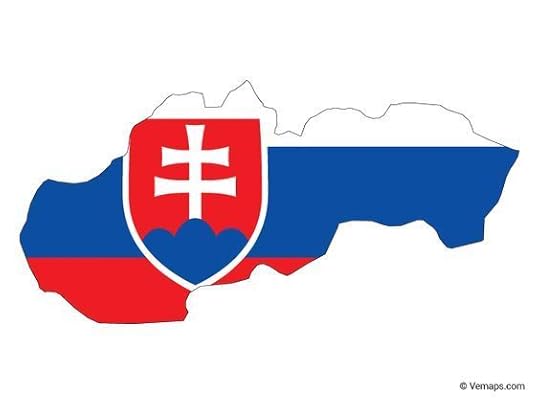
My non-Jewish relatives in Slovakia did a lot to help Jewish people from the Protectorate of Bohemia and Moravia- the German occupied Czech part of former Czechoslovakia. My husband’s great grandfather was working in railroads.
Slovakia proclaimed independence in March 1939 when the Czech part of state was occupied by Nazi Germany. Slovakia was not occupied by the Germans but had its own fascist state with the president Tiso, an anti-Semitic catholic priest, and they had very discriminatory anti-Jewish laws.
My husband’s Czech great-grandfather and his son-in-law, a Slovak from a family who were spread through Slovakia, Hungary and Vojvodina in Serbia, did an incredibly brave work.
The Czech great-grandfather, like the majority of Czechs left Slovakia at the 1939 partition and moved to Prague).He smuggled Jewish refugees to Slovakia with cooperation of other Czech railway employees. His Slovak son-in-law spoke Slovak, Hungarian and Serbian, which helped. They smuggled many Jewish families from the occupied Czech part of former Czechoslovakia – Bohemia and Moravia, as it was called ,to Slovakia, and then through Hungary to Serbia. This “underground railroad” worked till 1941 when the kingdom of Yugoslavia was occupied and partitioned by the German, Italian, and the fascist states Hungary and Bulgaria. Although there was a guerrilla war with partisans fighting the invaders, smuggling Jewish refugees in was difficult. Hungary and Slovakia were not occupied by the Germans, but the further route was through occupied Serbia. If the refugees got through, Bulgaria was later quite safe, because it stopped transport of Jews to concentration camps in Spring 1943.
These brave men and their colleagues were lucky, they were not caught.
Eastern European countries like Poland, Slovakia, Ukraine have a bad reputation as far as attitudes to Jews. But we must not forget all those people who risked their lives to help Jews, even if they were unfortunately in a minority.
One of my other relatives, a Slovak Jew, was hiding in Slovakia with partisans for most of the war. He was lucky, but all his family was killed in concentration camps. Those Slovak partisans saved him.
And yes, there were pogroms in Eastern Europe after 1945. However, generalisations like “The Poles are antisemitic” are wrong. There are always good brave people in any nation, we must not forget that. Right?
May 16, 2021
Death marches and a taster of my novel.
I just read this article in The Guardian.
One of my aunts, my mother’s cousin was only 18 when she was on one of these death marches. She run away, burnt her forearm to destroy the number and pretended to be a German escaping from the Russians. Some local Germans gave her money for train tickets. My aunt got back to Prague and worked as a servant for a German family. She bleached her hair so that no one could recognise her. In May 1945, the German family wanted to take her with them ,running away from the Russians. She went to the Czech concierge and begged her to hide her, telling her she is a Czech Jew. She only came back to the relatives who didn’t get deported ( mixed marriage) when Prague was liberated. I only knew this aunt as a timid housewife, shy, grey, like a mouse. Yet, she was a hero.
I used her story in my novel. I gave her a friend, Rosa, and added things. My book is a novel. My aunt Eva who I was named after can’t read it, she died some years ago in the USA where she emigrated after the war. But my novel is dedicated to her and the others.
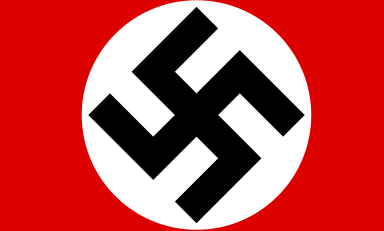
This is a part when the character copied from my aunt is telling Zuzana, the main character about the war. It is 1987.
“It was only after the war that people called it a “Death March”. It was July 1944, and they were marching us from Auschwitz to Loslau. It was hot, and I felt faint. I was walking slowly with the others, trying to ignore the shouting, people being beaten, sometimes shot when they fell to the ground. I was stumbling, too, and then I tripped and fell. A young male guard approached me and kicked me, hard. His boots were dusty. Then I saw the gun. I was staring at the gun, waiting for it to go off, but I did not have the strength to get up.”
I looked at Irma, she was alive so something must have saved her!
“What happened? Did he shoot and miss you?”
“No, a miracle happened. A female guard Herta Muller, who had enjoyed beating us, came closer. I expected a blow, but instead, she hit the man’s arm so that he dropped the gun, and shouted:
‘You idiot, you are too wet behind the ears to decide who lives and who dies!’
Then she pulled me up by my hand, kicked me, but only slightly, and pushed me forward. I didn’t dare to look at her.”
“Aunt Irma, why do you think she did it? Was she just showing the young man she was the boss? Did she feel sorry for you?”
“I really don’t know. After the war, we were looking for the family, not the Nazis.”
Irma told me that Rosa saw it and grabbed her hand. She was shaking.
“Walk with me, Irma. I’ll look after you.”
“So, the SS woman saved your life?” I asked,
“Yes. Maybe she knew the war was ending and wanted to have a story showing her in a good light.”
The march was chaotic. The two girls escaped to the forest and burnt their numbers.
“So, what happened in the morning?” I asked.
“We covered our very sore forearms with long sleeves and went and knocked on the door of a nearby cottage. We were hoping the people would be Polish and hide us, but it was a German family. My brain was buzzing, and then I blurted the first thing I thought of. I told them the Russians were coming and had burned our home, that we just managed to escape.”
“Did they believe you?” It was fascinating. I completely forgot about Harry having to talk to Irma’s impossible husband, I wanted to find out more. I sat on the kitchen table and stopped drying the dishes. Irma was talking while preparing the dessert.
“Yes. They took us in and gave us soup. Zuzana, I don’t know how we managed to hold the conversation and agree with them that the Führer had a secret weapon, that everything was going to turn around. Lying convincingly is a useful skill. Rosa was a very convincing liar. You know, Zuzana, my parents told me not to lie, but lying saved our lives. The German family gave us food and money for train tickets. On the long journey, we kept repeating the story. All those Germans felt sorry for us, refugees from the East. Once, somebody asked Rosa why she had an Austrian accent. “My mum was Austrian”, she said. For once, she was telling the truth and I smiled at her. When we were together, we had fun, despite the fear of being discovered. Being with Rosa was almost like being in another world, a world where the Nazis were gone, and we were just two friends, girls giggling about silly jokes, happy people. She made me happy. We sang children’s songs, and she taught me some silly ones. One was: Du bist Verrückt my Kind…You’re crazy, my child, you have to go to Vienna, where the crazy people are, that’s where you belong! We sang it on the train, laughing, and the German woman sitting close to us smiled. Was she a Nazi? Who knows? She probably thought we were.”
“I know that song from my Grandma, too.” I said.
“Rosa was funny. She embellished our story with details just to amuse herself. My lies were always clumsy, so I kept quiet. I told her, when we were alone, that she should become a writer after the Nazis lose the war. We both believed the Nazis were going to lose. That was the hope that kept us alive. Well, it kept me alive, Zuzana.” Irma started to cry. I cried, too, I didn’t want the brave Rosa to die, but why was Irma crying?”
May 12, 2021
Opinion Revision
Yes. I have changed my opinions about lots of things over the years. Growing up in a communist country I was what I would now call rather right wing. Enemies of my enemies were my friends. Whoever was criticised by the Soviet regime we thought was good. Of course, life is much more complicated than that. One of my bugbears is people presenting opinions as facts. It happens a lot. And it’s no point arguing with those people. Arguments aer only worth it if both sides are willing to listen and possibly change their opinions.There is a joke ” women have cleaner opinions, they change them more often” Well, good for them, I say. It’s the same with prejudices. People often think they don’t have any. We all do, and if we know our prejudices, we can fight them. Instead of generalising about ” all …..are…” So let’s all change our opinions when we hear a better argument. Life will be better if we do.
“No well-informed person has declared a change of opinion to be inconstancy.”–Marcus Tullius Cicero
One of my history teachers said something to the effect that people who choose not to evaluate their opinions may simply be pigheaded. He also admitted that what he said was just his opinion and that he was open to changing it. I don’t remember the context of his statement–perhaps it was during a lecture about Russia’s Catherine the Great. It seems that discussions about monarchs and absolute rulers fuel plenty of debate.
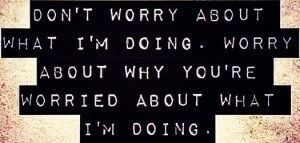 One of the ways that quiet contemplation of our points of view and how we interact with the world is that we can mentally appeal to our “inner court of appeals”. Whereupon we once passed judgment on a person or a particular concept or idea, we can silently reconsider that judgment by taking new facts into consideration.
One of the ways that quiet contemplation of our points of view and how we interact with the world is that we can mentally appeal to our “inner court of appeals”. Whereupon we once passed judgment on a person or a particular concept or idea, we can silently reconsider that judgment by taking new facts into consideration.
This practice is not favored in…
View original post 392 more words
May 8, 2021
I loved my mother, although I didn’t know it.
It is Mother’s Day in the USA. Not here, but my family never celebrated it anyway.
However, all those entries on FB made me think about my mum.
A Holocaust survivor, she was 18 when the war finished, and found out that her father and brother, as well as many other relatives have been killed.
She managed remarkably to jump 5 grades to graduate with her class at school, school she had to leave age 11 because she was Jewish. She met my father and married.
From now on, life was going to be perfect.
Not quite. The communists came to power, and my parent’s marriage was not happy. Being with my mother was not easy, she tended to say intentionally hurtful things, she was manipulative, and enjoyed making scenes.
I was her only child, and no doubt she loved me. But she was looking for a small version of herself in me and was continually frustrated that I seemed to be the exact opposite. I was equally frustrated that my mother wanted me to be so many things that I was not. We were both disappointed in each other. We had many arguments.
My parents’ marriage didn’t last. After their divorce, she studied medicine and became a dermatologist, quite an achievement.
Our relationship was stormy, although it got better with time. Sometimes we don’t notice love. She was often hurtful, but she was always trying to protect me from being hurt by other people. I remember how she worried about me and wanted to help me. I remember how she used to embarrass me by telling other people how brilliant, beautiful and accomplished I was. She often told me the exact opposite in private. I somehow didn’t notice the love, because of her poisonous words, but even those words were often meant to protect me.
I found signs of her love by clearing her flat in Prague after she died. She kept all my letters from when I was a child!
I also found this photo of my parents on their wedding day. 1947, before the communists came to power. Two years after he war.
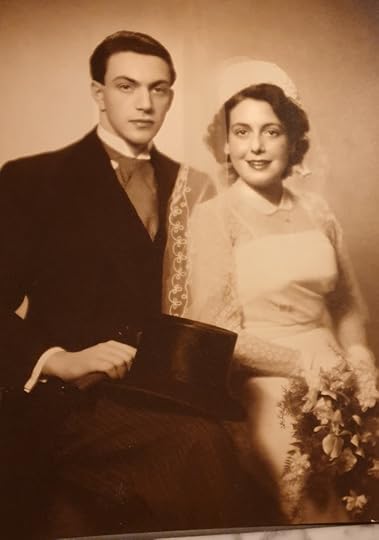
She looks beautiful and happy.
I started to write my novel after she died. It is fiction, but it deals with a difficult mother-daughter relationship. Writing the book made me come to terms with my feelings. And now, I only feel love for that competent, brave, damaged yet wonderful person who was my mother, Hana. She is dead so I can’t tell her I love her. But I do.
May 7, 2021
We always need kind people
This is a very interesting article
https://www.theguardian.com/media/2021/may/06/guardian-200-ad-that-saved-jewish-father-from-nazis
More refugee stories. And kind people helping.
May 5, 2021
Be good to refugees, it could be you…
I posted this in November. And this article in The Guardian made me re-post it. I am thinking about all the cases in the past, the ships with Jewish refugees returned back to Europe, or in one case diverted to Mauritius. I am thinking about how birth rates in Western countries are going down, in the USA, Italy, Germany. The populations are aging. In my opinion, we not only should be more welcoming for kindness sake, but we need the refugees. This article made me sad .
https://www.theguardian.com/global-development/2021/may/05/revealed-2000-refugee-deaths-linked-to-eu-pushbacks?utm_term=0f8b12995735aabf534ccb80dbd67793&utm_campaign=GlobalDispatch&utm_source=esp&utm_medium=Email&CMP=globaldispatch_email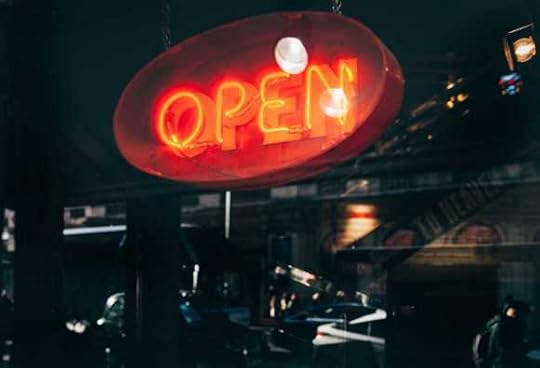
.
The main theme of my novel, emigration, is as important as ever.
I know from my family history that people can find themselves in a situation where their home is not longer safe. Suddenly, they don’t belong. Their identity somehow changes.
My family members felt Prague was their home, their identity was Czechoslovak, and only secondary also Jewish.
However, identity depends also on how other people see us. In 1939, the identity of my family was Jewish, all else became non important. They have lived there for more than 400 years, but that was no longer important.
Some emigrated, most didn’t. Some , including my parents survived the war, most didn’t. Emigration saved the ones who emigrated, but they were not always welcome.
One of my relatives who emigrated from Prague to Brooklyn, NYC in 1938 as a 12-y old girl still hates the word “ refugee”.
She is now 94, still living in New York, but she still gets upset talking about it.
“ Bloody refugee, that was what everybody called me at school.”
I emigrated from communist Czechoslovakia in 1986. I was lucky, the Cold War was still on, getting political asylum was easy for me, I was also European, white, a doctor. I felt welcome in the UK.
There are millions of people running away from famine, wars, discrimination. Most of them are not white, they are poor, sometimes not educated. They need us.
It is my strong feeling that we should welcome them, if not for altruistic, human reasons, then because we might get into the situation when we might become refugees, too.
Yet, some people who themselves used to be refugees for some bizarre reason don’t want to welcome refugees in our country,
Britain’s home secretary Pritti Patel, daughter of refugees is trying to introduce a system that would make immigration into the UK harder.
I met Jewish people who also don’t want influx of refugees. In my opinion, these people, and Pritti Patel should know better.
My point:
When you see a refugee, not speaking your language, trying to get in, don’t judge them It could be you!

May 4, 2021
My book will be launched in the same month we will add a lasting memory of my relatives who died in the Holocaust.
September will be an eventful month for me.
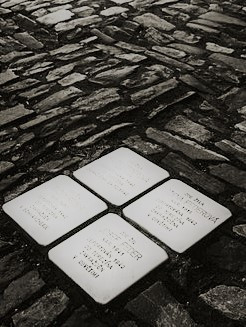
Do you know about Stolpersteine? There are little gold colour tiles with names put in the pavements in front of the houses where the victims of the Holocaust last lived and were free before deportation. I think it is a wonderful idea, and it is so good that it was a German artist that came up with it.
https://en.wikipedia.org/wiki/Stolperstein

So in September, the names of my grandfather, grandmother, my mother and her brother will be on the Stolperstein tiles in front of the house in Prague on the embankment of river Vltava, where they last lived.
There is going to be a ceremony. My grandmother and mother survived, my grandfather and uncle were killed.
In my novel, there are lots of real family stories, fictionalised. Theirs, too.
So I am pleased that the ceremony will be at the same time as the publication of my novel, dedicated to the ones who didn’t come back.
We will walk over the Charles Bridge , the one on the cover of my novel. And I will be thinking: ” Would they like what I wrote? I hope so.
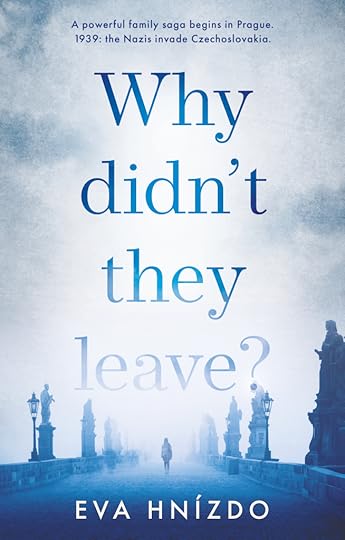
My book will be launched in the same months we will add a lasting memory of my relatives who died in the Holocaust.
September will be an eventful month for me.

Do you know about Stolpersteine? There are little gold colour tiles with names put in the pavements in front of the houses where the victims of the Holocaust last lived and were free before deportation. I think it is a wonderful idea, and it is so good that it was a German artist that came up with it.
https://en.wikipedia.org/wiki/Stolperstein

So in September, the names of my grandfather, grandmother, my mother and her brother will be on the Stolperstein tiles in front of the house in Prague on the embankment of river Vltava, where they last lived.
There is going to be a ceremony. My grandmother and mother survived, my grandfather and uncle were killed.
In my novel, there are lots of real family stories, fictionalised. Theirs, too.
So I am pleased that the ceremony will be at the same time as the publication of my novel, dedicated to the ones who didn’t come back.
We will walk over the Charles Bridge , the one on the cover of my novel. And I will be thinking: ” Would they like what I wrote? I hope so.

May 1, 2021
Writing first newletter
After starting with a long draft which included parts of my novel and spoilers and was far too long, over 1300 words.
Don’t worry! I cut and cut and cut.
So now I have a draft with less than 200 words. Just a welcome and what will come next. I am a woman of many words, so I am quite proud of myself. I need to learn how to put the email letter on mailerlite.
The newsletter will only come useful once I the book is available. Other information is all here on the blog.
I have been vaccinated and can’t wait to hear from the UK government that we can travel again. It should happen after 17th May. Can’t wait. Hello world, here I come!
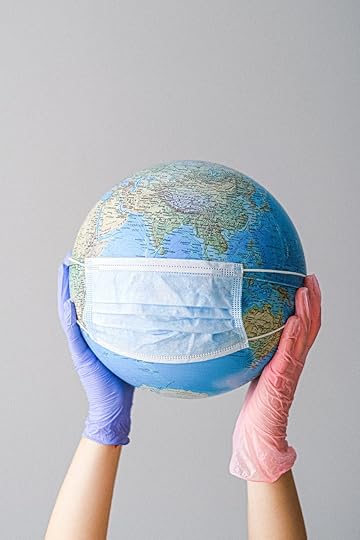 Photo by Anna Shvets on Pexels.com
Photo by Anna Shvets on Pexels.comi will try to concentrate on writing my new book, the one about a woman who is really a wasp.
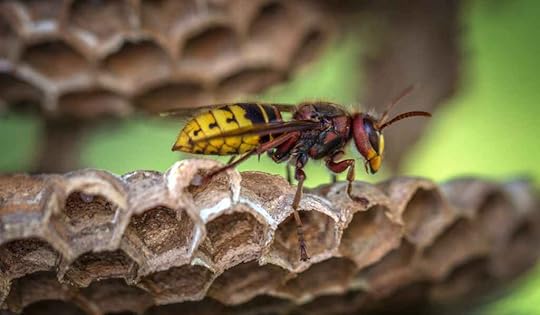 Photo by David Hablu00fctzel on Pexels.com
Photo by David Hablu00fctzel on Pexels.comI am studying life of wasps and hornets, insects are fascinating. And writing is fun.
Whoever reads it, be well, be safe, get vaccinated if you can!


